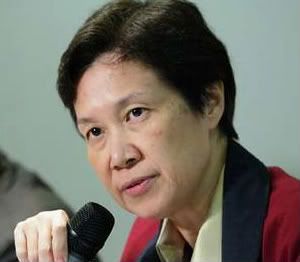<TABLE cellSpacing=0 cellPadding=0 width="100%" border=0><TBODY><TR>GOVERNMENT SCHOLARSHIPS
</TR><!-- headline one : start --><TR>Equal chances for all
</TR><!-- headline one : end --><!-- show image if available --></TBODY></TABLE>
<!-- START OF : div id="storytext"--><!-- more than 4 paragraphs -->WE REFER to Monday's editorial, 'Scholarships and the cut of relative merit'.
Meritocracy is one of Singapore's fundamental values and critical success factors. Every Singaporean, regardless of family background and circumstances, should have full opportunities to realise his potential. But we should not confuse meritocracy, where each succeeds based on his abilities, with affirmative action which seeks to equalise outcomes.
All government scholarships, including those from the Public Service Commission (PSC), are awarded strictly on merit. We encourage students from all family backgrounds to apply. There is no quota, so when two candidates are equally deserving, we never have to discriminate in favour of the student from a poorer background - we give the award to both.
=> Don't lie lah! FTrash cum first. Leftover is for Sporns to fight over!
About half of PSC scholars live in private property, but this is not because the system is unfair or un-meritocratic. One major reason is that they are likely to have able parents who have benefited from our meritocratic system. Successful parents then have children who are also likely to be able. This happens in every society, whether because of nature or nurture.
=> Other societies are transparent and democratic and take care of their citizens first. Why cherry pick again on the excuses to give?
We will do our utmost to give students from less privileged backgrounds as equal a start in life as possible. That is why we invest so much in education - not just in the top schools and universities, but also in all our neighbourhood schools, the ITE and polytechnics. We want every child to have the maximum chance of succeeding.
We have many bursaries and financial assistance schemes, from kindergarten all the way to university. Needy students also receive help to buy computers, attend enrichment programmes and go on overseas exchange programmes.
These schemes have helped many students to move up and do well. No deserving student is denied entry into a top school for lack of money. In short, we seek to level up everyone, not to pull down the successful. In this, we have done far better than many developing or developed countries.
One of Singapore's strengths is that a good number of our most able students, including those from well-off families, see purpose in public service and take up government scholarships. Our challenge is ensuring that outstanding students continue to do so in spite of the many attractive alternatives open to young people today. It would be Singapore's loss, and contrary to our fundamental values, to penalise students for their parents' success and deny capable students scholarships simply because they come from well-off families.
Ms Goh Soon Poh
Secretary
Public Service Commission
Mr Loh Ngai Seng
Deputy Secretary (Policy)
Ministry of Education
</TR><!-- headline one : start --><TR>Equal chances for all
</TR><!-- headline one : end --><!-- show image if available --></TBODY></TABLE>
<!-- START OF : div id="storytext"--><!-- more than 4 paragraphs -->WE REFER to Monday's editorial, 'Scholarships and the cut of relative merit'.
Meritocracy is one of Singapore's fundamental values and critical success factors. Every Singaporean, regardless of family background and circumstances, should have full opportunities to realise his potential. But we should not confuse meritocracy, where each succeeds based on his abilities, with affirmative action which seeks to equalise outcomes.
All government scholarships, including those from the Public Service Commission (PSC), are awarded strictly on merit. We encourage students from all family backgrounds to apply. There is no quota, so when two candidates are equally deserving, we never have to discriminate in favour of the student from a poorer background - we give the award to both.
=> Don't lie lah! FTrash cum first. Leftover is for Sporns to fight over!
About half of PSC scholars live in private property, but this is not because the system is unfair or un-meritocratic. One major reason is that they are likely to have able parents who have benefited from our meritocratic system. Successful parents then have children who are also likely to be able. This happens in every society, whether because of nature or nurture.
=> Other societies are transparent and democratic and take care of their citizens first. Why cherry pick again on the excuses to give?
We will do our utmost to give students from less privileged backgrounds as equal a start in life as possible. That is why we invest so much in education - not just in the top schools and universities, but also in all our neighbourhood schools, the ITE and polytechnics. We want every child to have the maximum chance of succeeding.
We have many bursaries and financial assistance schemes, from kindergarten all the way to university. Needy students also receive help to buy computers, attend enrichment programmes and go on overseas exchange programmes.
These schemes have helped many students to move up and do well. No deserving student is denied entry into a top school for lack of money. In short, we seek to level up everyone, not to pull down the successful. In this, we have done far better than many developing or developed countries.
One of Singapore's strengths is that a good number of our most able students, including those from well-off families, see purpose in public service and take up government scholarships. Our challenge is ensuring that outstanding students continue to do so in spite of the many attractive alternatives open to young people today. It would be Singapore's loss, and contrary to our fundamental values, to penalise students for their parents' success and deny capable students scholarships simply because they come from well-off families.
Ms Goh Soon Poh
Secretary
Public Service Commission
Mr Loh Ngai Seng
Deputy Secretary (Policy)
Ministry of Education




